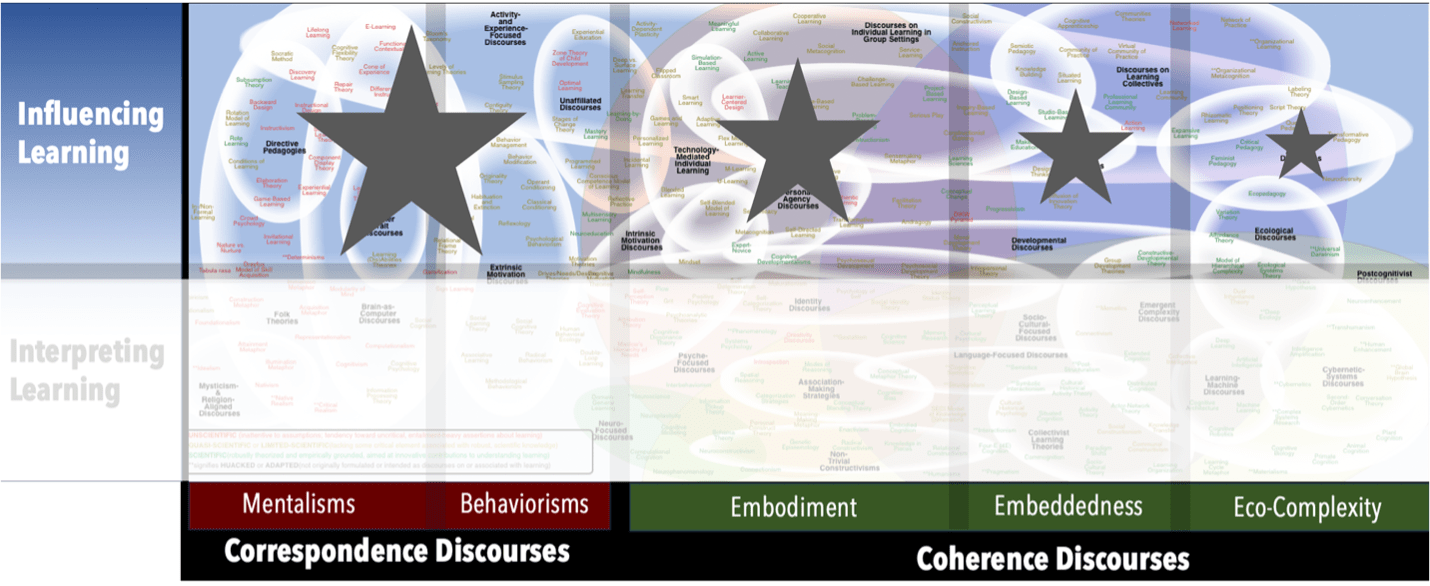Focus
Practices arising from popular discourses on learningPrincipal Metaphors
Owing to the fact that Correspondence Theories have dominated discussions of formal education for centuries, their associated metaphors tend to infuse contemporary schooling practices – and, so, are prevalent across many Consequential Educational Practices:- Knowledge is … external, objective truth
- Knowing is … internal, subjective understanding
- Learner is … a mental entity in a physical body
- Learning is … internalizing
- Teaching is … transmitting
Originated
Some discourses included among Consequential Educational Practices trace back millennia, but there is a concentration of influence corresponding to the emergence of Standardized Education in the 1700s and 1800s.Synopsis
Consequential Educational Practices are, in effect, translations of assumptions about and theories of learning into educational actions and policies. Almost every discourse on learning has relevance for teaching. For those discourses concerned mainly with interpreting learning (i.e., in the bottom half of our map), advice on teaching is most often indirect and inferential. For those discourses concerned mainly with influencing learning (i.e., in the top half), recommendations are more direct and explicit. Even so, most Consequential Educational Practices cannot be properly described as “discourses on learning,” and so we have gathered them together on the edge of our map and grouped them in the following categories:- Assessment and Evaluation – activities focused on monitoring student learning
- Classroom Management – advice on establishing and maintaining settings that support learning
- In-/Non-Formal Learning – a typology of sites and types of learning
- Instructional Design Models – advice on planning and implementing effective lessons and programs
- Schools of Education – tracking conceptions of learning through the evolutions of faculties of education, educational research, and models of teacher education
- Teaching Styles Discourses – attempts to identify and/or categorize modes of teaching
Commentary
The implication of unidirectionality in the description above – that is, of theories and beliefs giving rise to Consequential Educational Practices – is somewhat misleading. As Consequential Educational Practices define the experiences of teachers and students, it becomes clear that they are not just the outcomes of theories and beliefs; they play significant roles in framing, amplifying, and perpetuating particular perspectives and attitudes.Map Location

Please cite this article as:
Davis, B., & Francis, K. (2022). “Consequential Educational Practices” in Discourses on Learning in Education. https://learningdiscourses.com.
⇦ Back to Map
⇦ Back to List
